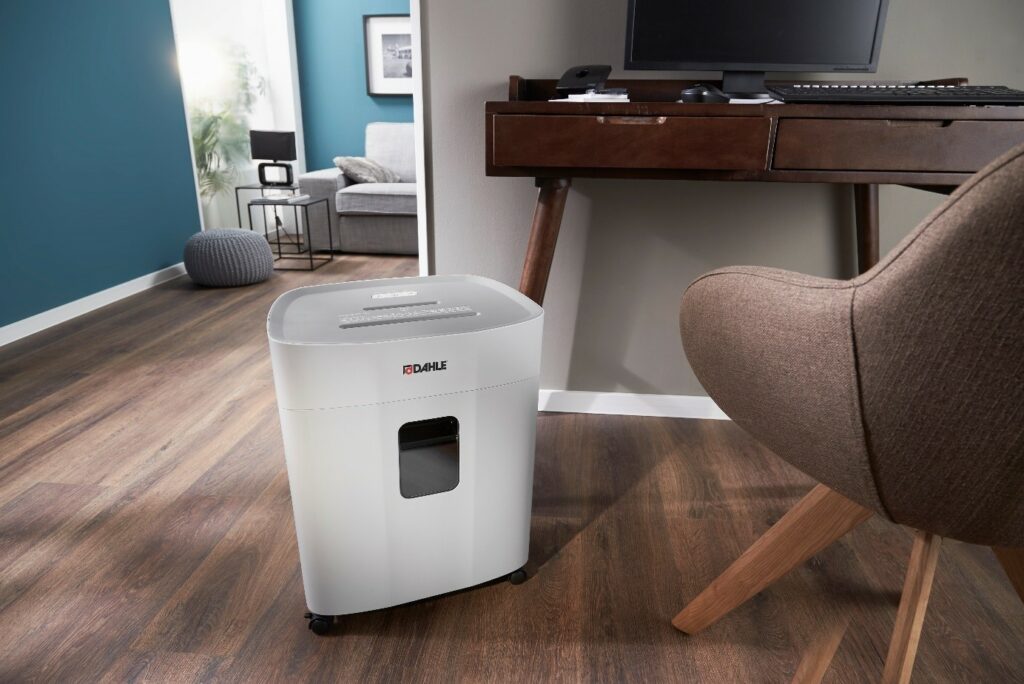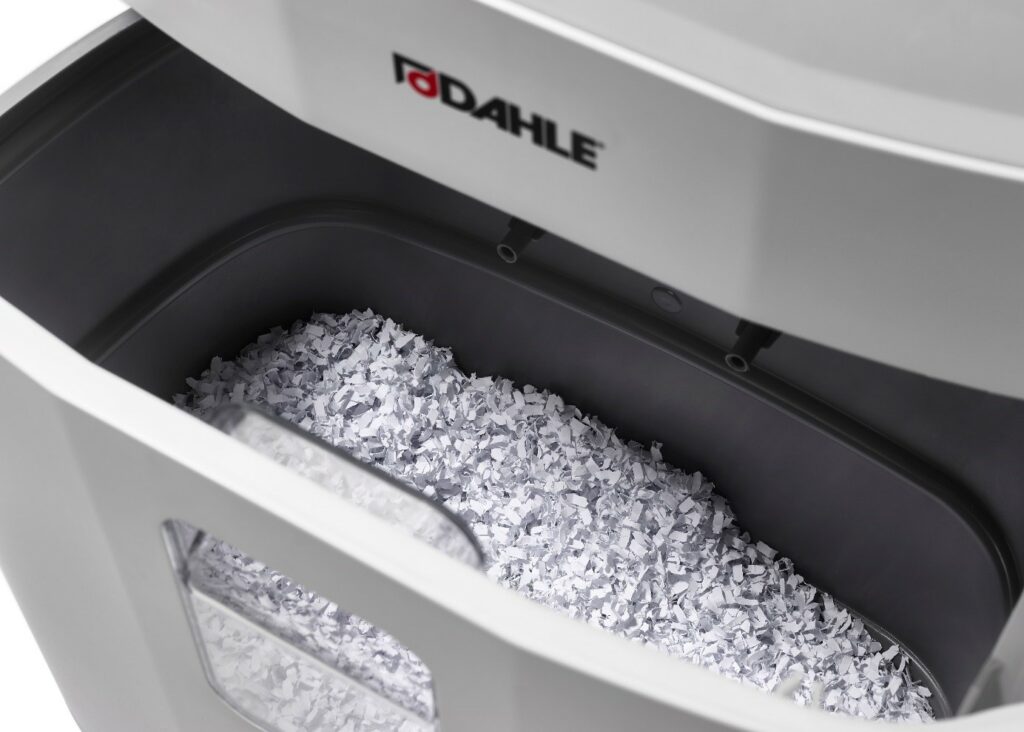How to comply with retention periods and dispose of documents you no longer need
Your desk has vanished under piles of paper, and the folders where you keep important documents are bulging. Particularly when you’re working from home, it’s crucial to keep your workstation neat and well organised if you want to stay efficient, because alongside your personal documents you now have to wrangle the papers you brought home from the office, too. Spring is the perfect time for a cleanout – get rid of your unneeded documents!
This article explains how long you have to hold on to invoices, receipts or payslips – and which documents you can happily feed into your shredder.*
Contracts
As a rule of thumb, documents should be kept as long as the contract is active. This applies e.g. to rental or insurance contracts. Once a contract has expired or been cancelled, you should retain the documents for another three years – that’s the length of the statutory period of limitation, which is calculated from the end of the year in which the contract ends.
Invoices
According to section 14b par. 1 cl. 5 no.1 of the German VAT law (UstG), private households must keep documents relating to taxable services and invoices for at least two years. Invoices for services provided by tradespeople should be kept for five years so you can make a warranty claim if necessary. Please note that the legal retention period begins at the end of the year in which the document or invoice was issued, so if you receive an invoice in, for example, May 2021, the retention period begins on 31 December.
We recommend keeping invoices for major purchases, e.g. an expensive high-tech cooker, beyond the legal retention period. In the event of damage in your home, you can submit the document to your household contents insurance. The same applies to bicycles: if yours is stolen, you can submit the invoice for it to your household contents insurer if your policy covers bikes.
Warranties
Warranties should also be kept for at least two years due to statutory warranty obligations. If you have to make a complaint, you can present the warranty.
Till receipts
Like invoices and warranties, the rule for till receipts is that you should keep them as long as the purchased item is under warranty. So you should hold on to them for at least two years.
Tax certificates and tax returns
In principle, you can throw away both your tax certificate and your tax return as soon as you have submitted or received them, unless your positive income is over 500,000 euros per calendar year: in that case you have to keep the documents for six years.
Payslips
There are no regulations requiring private individuals to retain payslips. But it can be worth keeping them until you retire: they can serve to document your pension entitlements. They may also be useful in other situations such as taking out a loan or if there are issues with your tax return.
Banking and insurance documents
There are no legal requirements regarding the retention of these documents by private individuals. But you would be well advised to keep them for the duration of the insurance contract or as long as you maintain the bank account.
Payroll tax statements
Private individuals are not legally required to retain tax documents. In your own interest, we nonetheless recommend archiving them: your tax statement allows you, for example, to quickly and easily prove your income to the Youth Welfare Office that may be demanding parental contributions for your child’s kindergarten place.
Statements of account
Statements of account should be kept for a full three years after the last transaction listed. This will allow you to respond to potential claims by proving you made the payment in question.
Private vs. business documents
Covid-19 has caused many companies to choose home office solutions. As a result, work papers are ending up at your house. Business documents often contain especially sensitive data. So before you drag your entire file cabinet home with you, make sure you know which files you really need and what rules apply to your profession. If in doubt, check with your employer.

Destroying documents is child’s play with DAHLE document shredders
Once you have sorted out the documents you no longer need, you can destroy them. But make sure you follow GDPR regulations and comply with the rules when destroying private or business documents. The best way to do this is with one of our DAHLE ShredMATIC® or PaperSAFE® document shredders. This broad range of devices includes document shredders with security levels P-2, P-4 or P-5 to suit the sensitivity of the documents you want to destroy. Their excellent functionality – no annoying paper jams, no maintenance – means you can shred your documents quickly and without stress. And thanks to their modern design, they look really stylish in your home. Stress-free shredding guaranteed!
Enjoy tidy folders, shelves and cabinets, thanks to DAHLE document shredders!
* This article does not constitute legal advice. The information it contains is based on online research on german guidelines. If you have questions regarding retention periods for important documents, please contact the corresponding authority.
